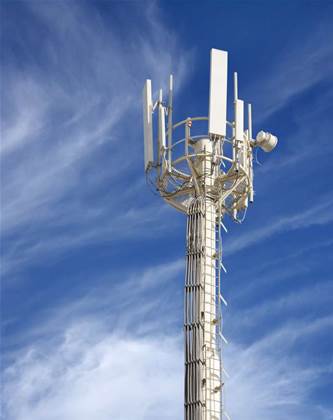The Australian Communications and Media Authority has started canvassing long-term options for the 1800 MHz band favoured by mobile telcos for LTE voice and data services.

The authority is backing what it calls a "bespoke approach" to any expansion of spectrum licensing in the 1800 MHz band. (pdf)
Currently, all 1800 MHz bandwidth in metropolitan areas is spectrum licensed, mostly to mobile carriers for early 4G services.
A small amount of the 1800 MHz band is spectrum-licensed in regional areas; the rest in regional and remote Australia is apparatus-licensed, meaning it is for "individual devices, usually on a site-specific basis". Spectrum licenses, by contrast, cover band usage "in a defined geographical area".
The most common apparatus-licensed devices in the 1800 MHz band are microwave backhaul links.
However, the ACMA is separately proposing the short-term introduction of a separate class of apparatus licenses in regional and remote Australia to facilitate the expansion of 4G networks there.
If successful, such apparatus licensing for 4G services in regional and remote Australia might remain in place in the long-term, according to the ACMA.
"There is no reason why the anticipated demand for spectrum in the remainder of the [1800 MHz] band could not be met through apparatus licences," the authority stated.
An alternative is to apply spectrum licensing across the whole 1800 MHz band, though the ACMA notes this could have adverse impacts on non-telco users — such as miners, rail operators and utilities — which might otherwise have access to cheaper apparatus licenses (if that proposal is accepted).
"Carving up the country into spectrum lots could, in effect, require energy or rail providers to pay for more spectrum than they actually need and could also lead to spectrum in some areas being unused," the ACMA said.
"Issuing spectrum licences may also limit the ability of new operators to gain access to spectrum in the same or nearby areas—for example, areas where multiple mines, owned by different entities, operate in close proximity."
ACMA, however, favours a third option that would effectively open portions of regional and remote Australia to spectrum-licensing for the exclusive use of mobile telcos.
Other users would have access to less-expensive apparatus licenses if they wanted to deploy site-specific 4G networks, such as for automated mining systems.
Such a "bespoke" approach relies on the acceptance of a spectrum assignment priority plan that the ACMA canvassed in its consultation on short-term options for the 1800 MHz band.
ACMA's own proposed priority plans are unpopular even with the mobile telcos they want to serve. VHA and Optus have proposed their own plans to allocate 1800 MHz spectrum for commercial 4G services.
While it is unclear if any of the ACMA's proposals to introduce more spectrum licensing to the 1800 MHz band will be accepted by industry, any such adoption will likely impact existing apparatus license holders in the band — the operators of microwave backhaul links.
One option would be to simply convert the licenses for microwave links from apparatus to spectrum licensing upon renewal, though the ACMA noted some substantial problems with this approach.
Alternatively, the apparatus licenses could be canned, forcing the previous owners to re-bid for new spectrum licenses at auction.
Submissions to the consultation close April 12.


_(23).jpg&h=140&w=231&c=1&s=0)








 iTnews Executive Retreat - Security Leaders Edition
iTnews Executive Retreat - Security Leaders Edition
 iTnews Cloud Covered Breakfast Summit
iTnews Cloud Covered Breakfast Summit
 Melbourne Cloud & Datacenter Convention 2026
Melbourne Cloud & Datacenter Convention 2026
 The 2026 iAwards
The 2026 iAwards











_(1).jpg&h=140&w=231&c=1&s=0)



